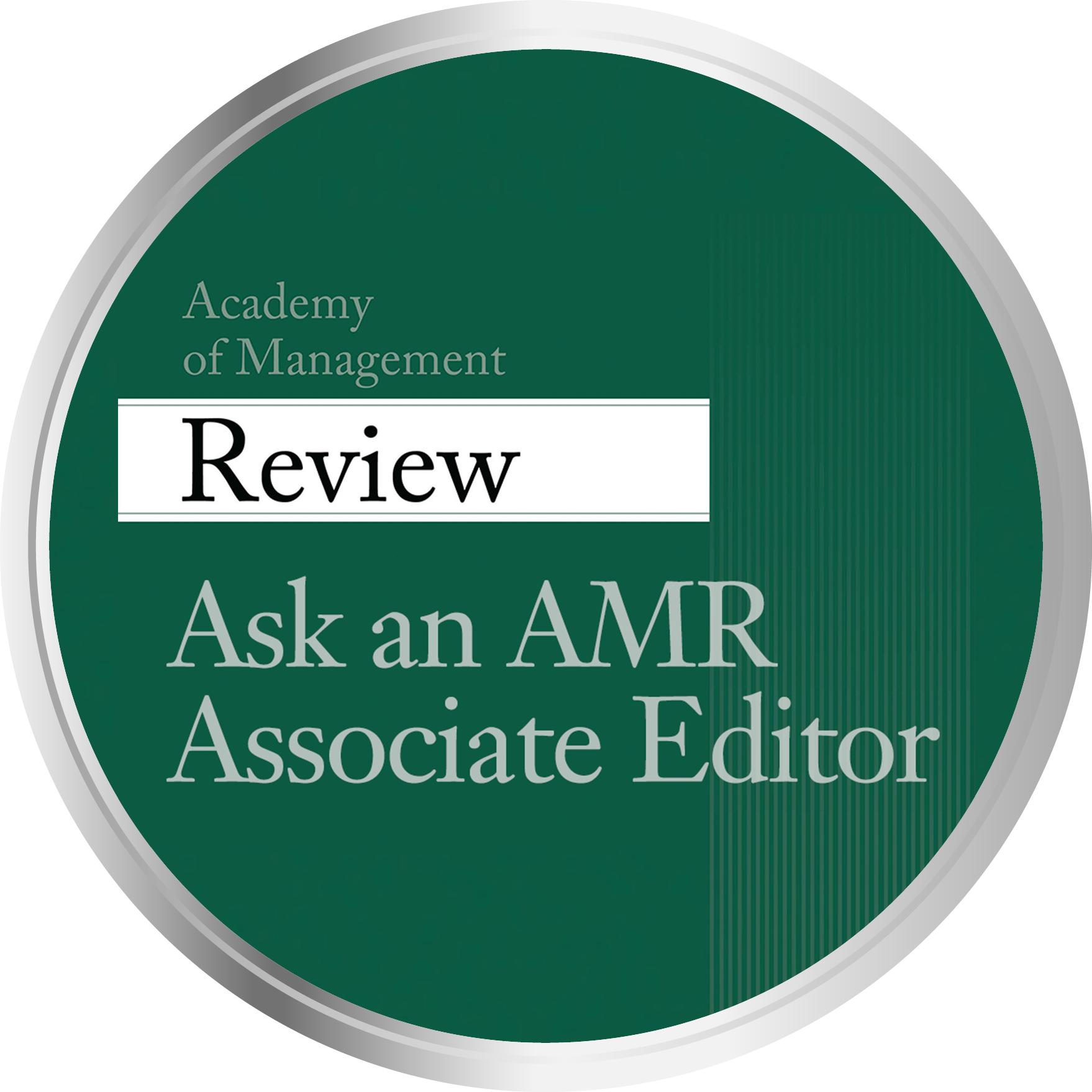
The mission of Academy of Management Review (AMR) is to publish theoretical insights that advance our understanding of management and organizations. Submissions to AMR must extend theory in ways that develop testable knowledge-based claims. To do this, researchers can develop new management and organization theory, significantly challenge or clarify existing theory, synthesize recent advances and ideas into fresh, if not entirely new theory, or initiate a search for new theory by identifying and delineating a novel theoretical problem. The contributions of AMR articles often are grounded in "normal science disciplines" of economics, psychology, sociology, or social psychology as well as nontraditional perspectives, such as the humanities.


Ask an AMR AE is a series of informal sessions with the Academy of Management Review’s (AMR) Associate Editors (AEs). Each session begins with a short presentation by one or more associate editors on a specific topic related to publishing in AMR. After the presentation, the featured AE(s) will answer participants’ questions. These sessions will help authors who are considering submitting their work to AMR and who seek guidance on navigating the publication process. AMR Associate Editors, Dana Minbaeva and Chak Fu Lam, are coordinating this series.
Access the AMR Ask an Associate Editor Session Series YouTube Playlist. If you have trouble accessing YouTube content, please use this alternate link.
Please visit the AMR Calls, Events, and Updates section below for a listing of upcoming events.
The Academy of Management Review’s Bridge Reviewer Program is an innovative program with a goal of expanding our pool of potential reviewers. Participants of this program complete self-guided learning modules on topics such as writing highly developmental reviews, observing the ethics of reviewing, and avoiding bias while reviewing. Learn more
Read through our Teaching Resources page for an Essay on Teaching Theory, information about developing a doctoral course, or pursuing your own professional development.